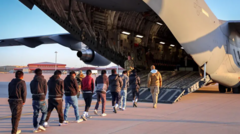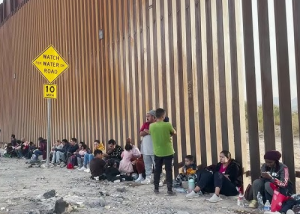A dramatic shift in immigration enforcement has seen thousands of Haitians forcibly returned to their homeland under inhumane conditions, with deportations occurring at a staggering rate of 10,000 weekly.
Desperate Haitians Return Home in Cages: A Rising Crisis at the Dominican Republic Border

Desperate Haitians Return Home in Cages: A Rising Crisis at the Dominican Republic Border
The Dominican Republic's stringent immigration policies lead to mass deportations of Haitians, sparking humanitarian concerns.
Cage-like trucks designed for transporting livestock have become a grim symbol at the border between Haiti and the Dominican Republic. These vehicles, far from carrying cattle, are full of Haitian migrants being expelled by Dominican immigration officials. Recent reports indicate that since October, over 55,000 people, including vulnerable groups such as pregnant women and children, have been subjected to deportations.
The swift crackdown is part of a new immigration policy in the Dominican Republic, fueled by concerns regarding the failing state of Haiti. This historical antagonism between the two nations, sharing the island of Hispaniola, has resulted in a charged atmosphere. Many Dominicans view the incoming migrants as a burden, prompting substantial governmental action to manage the perceived crisis.
One deportee, Rose-Mieline Florvil, shared her harrowing experience after being abruptly taken by immigration officials in Santiago. "I couldn’t run, because I’m pregnant," she recounted, underscoring the plight of many caught in the crossfire of this immigration struggle.
As Dominican authorities aim to ramp up deportations, the humanitarian implications raise pressing questions about the treatment of migrants and the role of international oversight. Conversations surrounding the rights and dignity of deportees must take precedence as the crisis escalates. Advocates for Haitian migrants are calling out for compassion and a reevaluation of policies that treat human beings as mere statistics.




















